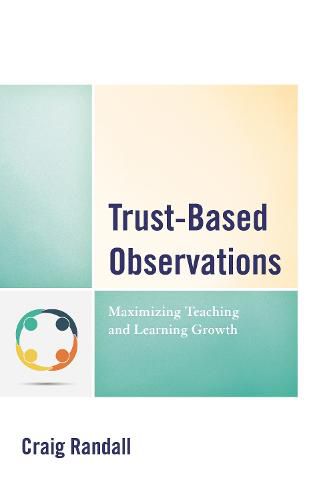Readings Newsletter
Become a Readings Member to make your shopping experience even easier.
Sign in or sign up for free!
You’re not far away from qualifying for FREE standard shipping within Australia
You’ve qualified for FREE standard shipping within Australia
The cart is loading…






The results are in, observations are not improving teaching and learning. Pertinently, the Gates Foundation’s recently completed, seven year, $200 million effort to improve student outcomes through enhancing the teacher evaluation process failed to achieve substantive improvement. The reason is, observations as currently designed, serve as an obstacle to teacher risk-taking. Teachers play it safe because: 1) they fear negative evaluations when their pedagogy is rated, and 2) they lack faith in being supported by supervisors because a trusting relationship between them and their observer has not been sufficiently built.
There is a path though to using observations to dramatically improve teaching and learning, Trust Based Observations, a schema changing evaluation model that understands people perform at their best when they feel safe and supported. It begins with twelve, 20 minute observations per week followed by collegial conversations driven by reflective questions, sharing observed teaching strengths, and the building of safe, trusting relationships with teachers. Add the elimination of rating pedagogical skills, replace it with rating mindset, and teachers trust. Finally, have empowered teachers lead small professional development communities connected to good practice and teachers fully embrace risk-taking and innovation, leading to remarkable teaching transformations and improved student learning.
$9.00 standard shipping within Australia
FREE standard shipping within Australia for orders over $100.00
Express & International shipping calculated at checkout
The results are in, observations are not improving teaching and learning. Pertinently, the Gates Foundation’s recently completed, seven year, $200 million effort to improve student outcomes through enhancing the teacher evaluation process failed to achieve substantive improvement. The reason is, observations as currently designed, serve as an obstacle to teacher risk-taking. Teachers play it safe because: 1) they fear negative evaluations when their pedagogy is rated, and 2) they lack faith in being supported by supervisors because a trusting relationship between them and their observer has not been sufficiently built.
There is a path though to using observations to dramatically improve teaching and learning, Trust Based Observations, a schema changing evaluation model that understands people perform at their best when they feel safe and supported. It begins with twelve, 20 minute observations per week followed by collegial conversations driven by reflective questions, sharing observed teaching strengths, and the building of safe, trusting relationships with teachers. Add the elimination of rating pedagogical skills, replace it with rating mindset, and teachers trust. Finally, have empowered teachers lead small professional development communities connected to good practice and teachers fully embrace risk-taking and innovation, leading to remarkable teaching transformations and improved student learning.